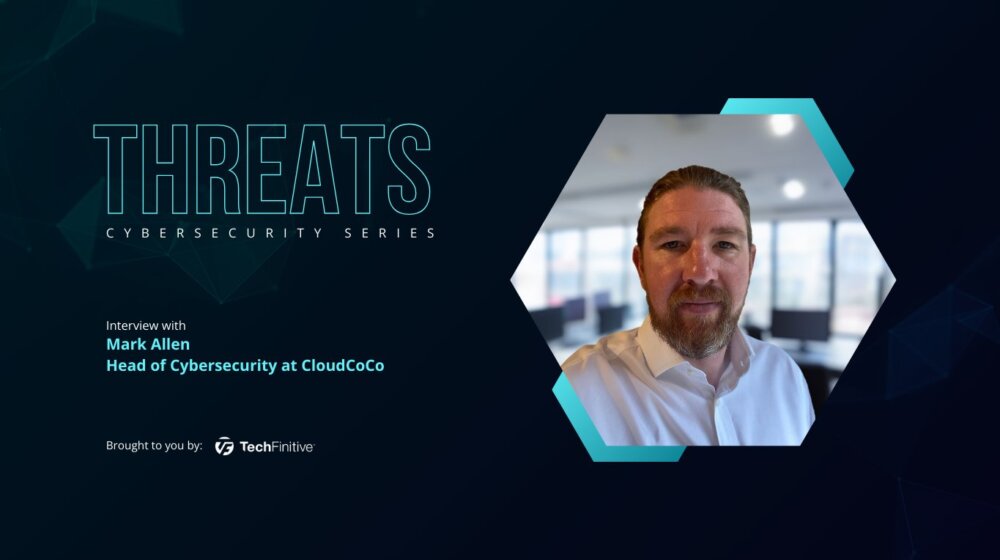
Angela Kenner, VP of Customer Success at Voltaiq: “Capturing data is easy, knowing what to do with it is the hard part”
Somehow the word “data” doesn’t have the same headline-grabbling weight as “AI”, but for Angela Kenner, VP of Customer Success at Voltaiq, it’s the crucial aspect of delivering a great experience to customers.
“I’ve always loved working with data, of any kind, and using it as part of my puzzle pieces when building out strategy,” she told us. But then, during a huge project, she realised something: “not everyone saw it the same way, used it in the same context, or had the same vision for operationalising it”.
So in this interview, you’re going to hear about data a lot. How using it allows you not only to launch new initiatives, but to iterate on them and make them better.
Naturally, data is useless on its own. Nor is it the only factor out there. So whether you’re thinking about your management style, the ethics of AI or you just need someone else’s perspective on delivering projects, this is a timely read.
Recommended reading: What is customer experience (CX)?
Could you please introduce yourself to our audience? What motivated you to pursue a career in customer experience, and how did you embark on your journey in this field?
Of course! My name’s Angie Kenner (she/her) and I’m Vice President of Customer Success for Voltaiq, which provides an Enterprise Battery Intelligence, or EBI, platform. This automates a comprehensive collection of data from every battery product lifecycle stage and business function, providing insights and analytical tools that drive competitive advantage and business success through battery excellence.
My professional history in customer experience goes far back even into my sales days, however, I became seriously passionate about working in the technology space about 13 years ago when I got my first customer success role with a company that provides accounting software for engineering firms. I loved the cross-over between becoming a software expert and working with engineers.
How do you ready yourself for an AI-driven landscape as a customer experience leader? What new skills do you need?
Read, listen and study!
While AI has been around for some time, what became disruptive was its incorporation into our products, tools and professional development. In my previous role, we had an enterprise-level customer experience software starting to roll out AI functionality, not just at the service level but at the proactive success level as well – and we’d meet as a team to discuss how best to apply it.
There are some great courses and certifications on the subject, a few I’m personally taking now – specific to operationalising AI tools – but I’ve found that tuning into experts in the field who can provide first-hand experience has been extremely helpful.
I would say for the “new skills” aspect when applying AI tactics, emotional intelligence and ethics, especially within how you engage with your customers is going to be key. Learning how to apply the technology and operationalise it is one thing, but we’re talking about how you can craft the best possible customer experiences, and I would rank emotional intelligence and ethics, as related to AI, at the top of skills to learn as you apply these new tactics and tools.
Do you anticipate any significant disruptions in customer experience technologyfor 2024? If so, what are those disruptions and why?
Digital transformation through the lens of customer experience. I’ve seen this first hand, and some examples are already in the market.
Generally, you’ll find digital transformation initiatives being led from the IT business unit within organisations. While that consolidation of data and technology makes sense to be controlled and organised at that level, leaders and stakeholders are finding that to really be successful in a digital transformation initiative, you have to put the customer in the centre of your goals and expected outcomes. Who better to help inform what the customer needs and wants, than your customer experience team?
The internal stakeholder groups collaborating on these projects are growing to include sales, marketing, success and service.
Recommended reading: Microsoft splits Teams from Office – but is it too little too late?
Could you share some of your most noteworthy accomplishments that you take particular pride in?
After nine long months of working through a major enterprise software integration, which included completely transforming our customer experience strategy, my team was nominated for a Frost & Sullivan award. The recognition was related to leveraging behavioural and product analytics to provide the best possible customer experience; I was thrilled to get that nomination email as the team (spanning more than 60 people) worked so incredibly hard and is deserving.
Anyone who’s gone through a project like that, where you’re consolidating decades of raw data and building tools like customer health scoring, knows the deep strategic needs and resource allocation necessary.
It’s incredibly important to celebrate your milestones with your team, and I was happy they received this recognition as part of that achievement celebration.
What core values have played a pivotal role in shaping your approach to customer experience?
Empathy – Collaboration – Be Agile.
Keep empathy top of mind as humans respond positively when they feel heard and validated. I tell my team all of the time, that I simply cannot be the only person with the ideas – collaboration with diversity in voice, strategy, and concepts is imperative to a successful customer experience.
Finally, be agile – I always encourage my team with a new idea to try it out, choose a method of measuring success, and iterate. The whole point of being agile is so we aren’t waiting to try new things when we think they are perfect, but instead, perfection isn’t what we should be aiming for at all.
Be comfortable with trying something new, even if there are unknowns, and be comfortable with iterating it after you measure success. Some of our most successful concepts came from trial, test, and iteration.
Recommended reading: What’s the best way to convert Word to PDF?
What major hurdles have you encountered as a customer experience leader, and how did you surmount them?
Capturing data is easy, knowing what to do with it is the hard part and that cannot be done in a vacuum. I’ve always loved working with data, of any kind, and using it as part of my puzzle pieces when building out strategy.
Data has always helped me see the opportunities and possibilities, but I realised during a major project of consolidating data that not everyone saw it the same way, used it in the same context, or had the same vision for operationalising it.
This was a fantastic learning experience, honestly, we had several stakeholders all sitting at the same table with the task of having to decide what our customer experience data strategy was going to be.
Being in customer experience, of course, I’ve always worked cross-functionally between groups like sales, engineering, marketing, and market development, but we hadn’t all worked together on a project like this before. I found through leading this project that ensuring everyone has a seat at the table is key. Having a seat at the table means actively listening AND understanding each stakeholder’s goals and perspectives is important for us to all move forward together.
What piece of advice would you offer to fellow customer experience professionals that has been particularly beneficial to you personally?
Get close to the product team! Honestly, the best thing I ever did in my career was learn more about product development and management. Learning how this team operates, what they are held accountable to, and how that all ties together with customer experience.
Of course, being in customer success we work with products – but I took the time to get a few professional certifications in digital product development and management over the years. Not only did I really enjoy the content as it helped me step into the shoes of a product manager, but it spurred so many ideas on how to optimise customer experience with our products.
There are some great foundational certifications and courses on product management, I always recommend them to anyone asking me how to up their game in the customer experience field.
I think the future of customer success is going to see more synergies and partnerships between product and customer experience.
NEXT UP

Riken to integrate IBM’s quantum system with supercomputer Fugaku
IBM and Japanese laboratory Riken have announced an agreement to deploy IBM’s quantum system and integrate it with supercomputer Fugaku

Dear Lord, let this be the last World Password Day
Security expert Davey Winder explains why he wants this to be the last World Password Day ever and prays for World Passkey Day instead

Mark Allen, Head of Cybersecurity at CloudCoCo: “It’s alarming to witness the extent to which deepfakes can be weaponised”
Mark Allen, Head of Cybersecurity at CloudCoCo, provides what amounts to a step-by-step guide to keeping your business more secure against cyberattacks – including deepfakes